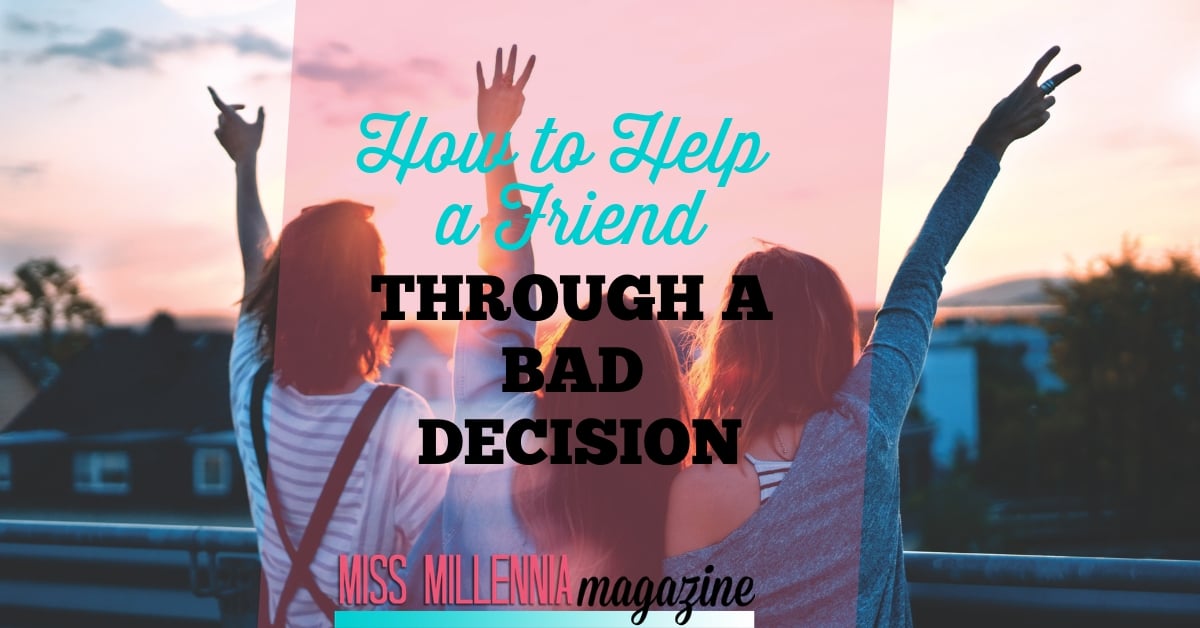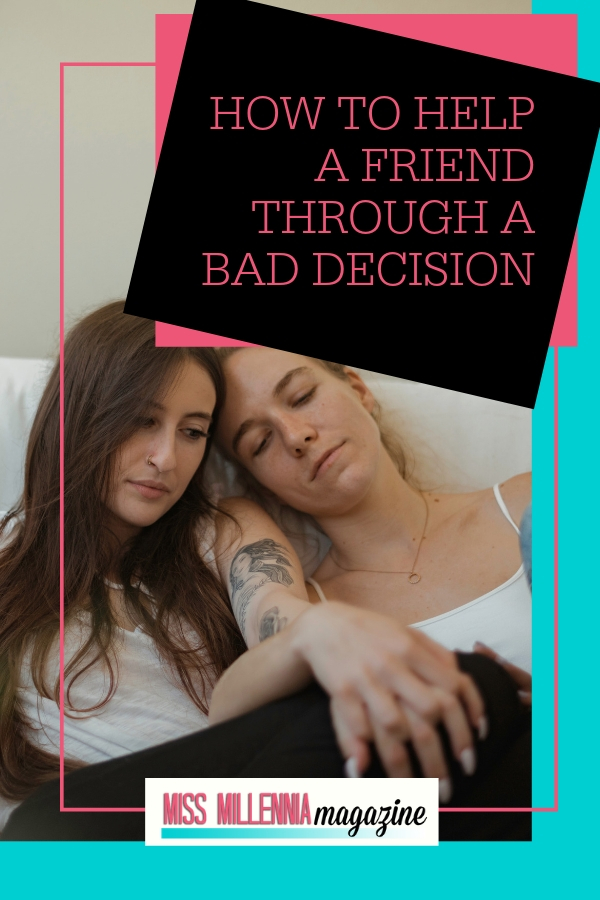How to Help a Friend Through a Bad Decision
I’ve been both the advisor and the advisee, the on-call therapist, and the one climbing into my roommate’s bed in tears asking if I can sleep there for the night. One of the most challenging parts such a situation is the desire to fix the problem at hand. It can be frustrating to watch the destructive behaviors of or towards someone you love. Although your plan of action might be close on hand, you might need to reevaluate your degree of involvement. At the same time, you’re not about to let your best friend walk down the aisle with the boyfriend who cheated on her twelve different times that month.
Let’s break this down.
What does “bad” mean anyway?
We all make our share of painful decisions; some are just more impactful than others. Be sure to evaluate the situation as objectively as possible, asking yourself why the execution of the situation at hand would be so detrimental. From an ethical standpoint, “bad” might mean morally wrong. And yet, we each have our own unique moral code that allows us to evaluate pros and cons, and ultimately reach conclusions that are closest to each of our personal values. Before raising your voice, consider who this decision is really hurting. Is your friend happy or unhappy in her current state? Are you more concerned about what you would do?
However, actions that are harmful to someone’s physical health require immediate action. Be sure to call 911 if your friend is considering physical harm to him/herself or others.
Withhold (Visible) Judgment
Criticizing a friend’s choices can do some serious damage to your relationship if you aren’t careful about the way you express that criticism. Be conscious of your demeanor and severity while discussing the problem. Something as small as a wrinkled nose can give away your disgust, and downgrade your credibility from “objective listener” to “opponent.” Not giving your friend a chance to explain her side might start a fight right off the bat rather than leading to a solution.
This approach might seem counterintuitive since you probably feel that you need to stop something unhealthy before it starts (or continues to worsen). However, there are (forthcoming) methods of discussion and conversation that don’t include making your friend feel isolated.
But You Don’t Have to Agree
I think a common misconception about being a “good friend” is that you either have to be brutal, unforgivingly honest, or you blindly agree. Social relationships, especially the close and important ones, require a certain amount of both tact and candor. Just because you aren’t actively vomiting at the mention of your friend’s terrible boyfriend doesn’t mean you can’t calmly express the reasons why he appears to be a negative force. You’re allowed to have an opinion in times that require honesty for the well-being of a loved one.
It might even helpful to phrase it in the form of a question. Let me give you an example (completely fictional) conversation:
Sarah
I noticed Jared was yelling a lot about the wedding plans.
Leah
Yeah, he raises his voice when he’s frustrated.
Sarah
Got it. Does it upset you when he acts that way?
Now a number of things can happen as a result. You might get information, you might get nothing, you might just have to move on with the conversation.
Result #1: Acknowledgment
Leah
It actually does upset me. It makes me really uncomfortable.
This might be the best-case scenario, in which Leah is honest with herself, and you merely facilitated that self-examination.
Result #2: Resistance
Leah
No, we’re just like that. And it’s not really your business.
Maybe she’s defensive because she knows she’s hurting, or maybe she and Fired-Up McGee over there really do just fight hard/love hard. Someone taking notice may still spark her attention, and she’ll be thinking about what you said before she goes to sleep.
Result #3: No Change
Leah
I don’t know, I haven’t really thought about it.
Gauge the situation. Does it feel like you should keep prying? Is it time to pull back? Use your judgment to determine whether it’s appropriate to bring this problem into the foreground right away.
Encourage, Don’t Discourage
While you might not be able to dissuade your friend from spending time with harmful people, but you can encourage her to participate in “positive experiences with yourself and other people from time to time” (Psychology Today). You can’t pry Leah from her loud, anger-prone boyfriend, but you can set up additional time for fun, exciting activities that remind her of the wonderful friends she has outside of her relationship. Perhaps the positivity might allow her to realize that she doesn’t need her boyfriend to fill any holes, or that she can indeed have a fulfilling social life with close friends—ones that don’t yell about every little thing.
Remember: Autonomy
With a little help in this scenario, Leah might just realize that she doesn’t want to marry this creep, but alternatively, he might not actually be a creep. Your opinions, past experiences, and associations color everything you think and do, try as you might be ultra impartial. Ultimately, your friend may have to make her own mistakes, or use all of the support and information you’ve given her to make an informed decision. She knows what’s best for her, after all.
Note that health-related or legal matters may be more serious, and may require immediate intervention. The National Suicide Prevention hotline is 1 (800) 273-8255, and as always, call 911 in the event of an emergency.
Being a good friend is less about stopping “bad decisions,” and more about guiding a friend towards optimal mental health. Hopefully, your support and guidance will lead to a natural digression from damaging influences.
How have you helped a friend through a potentially harmful decision? Tell us about it in the comments!
Resources
Santa Clara University









